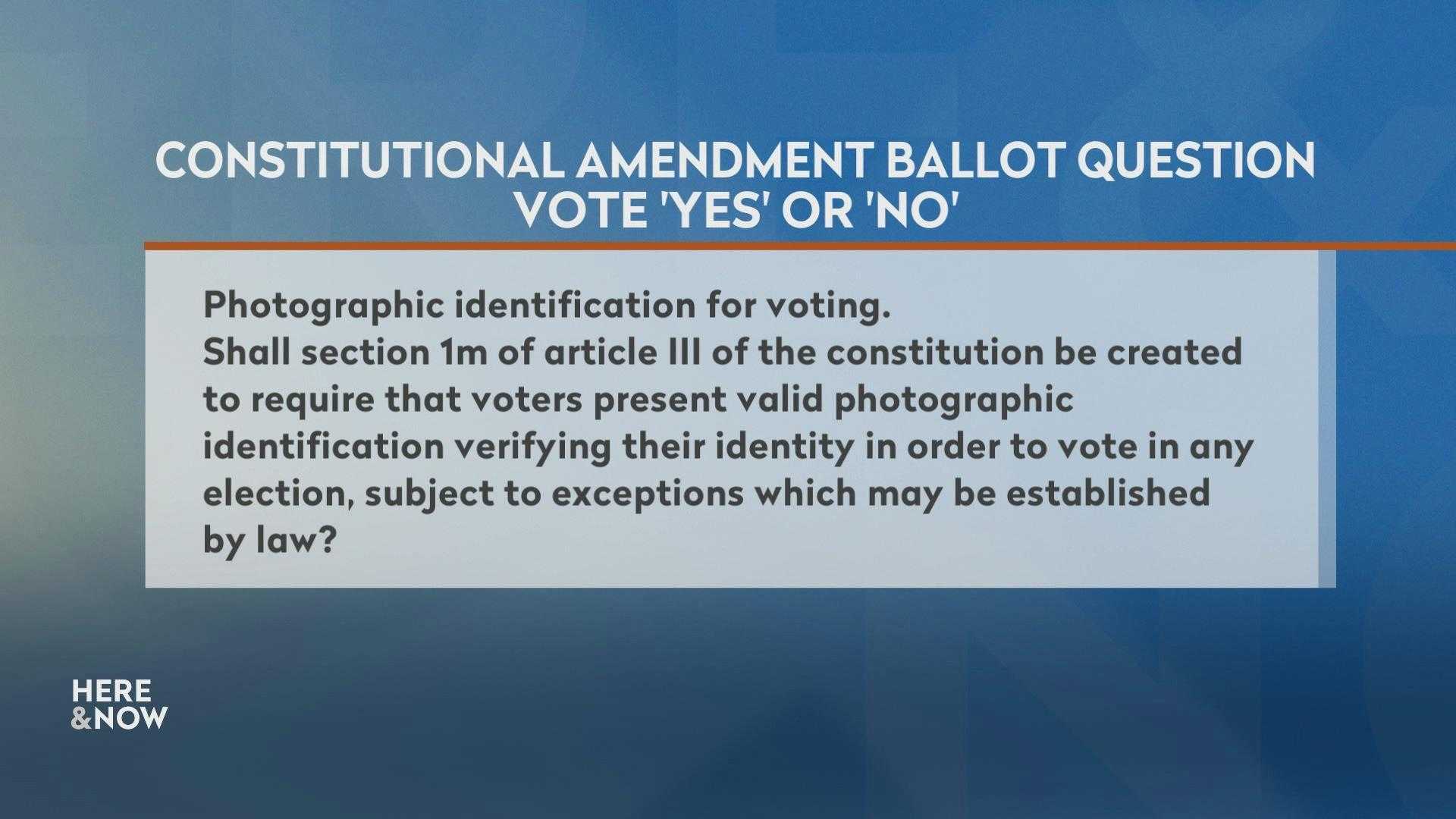Politics
Wisconsin Voters Face New Constitutional Amendment on Photo ID Requirement

MADISON, Wis. — On April 1, Wisconsin voters will face a crucial decision that could reshape the state’s voting landscape. The ballot will include a proposed constitutional amendment that seeks to mandate photographic identification for all voters, a move that supporters argue will enhance election security but critics claim will disenfranchise certain groups of voters.
This amendment comes after a decade-long debate surrounding the voter ID law, first enacted in 2011 under then-Gov. Scott Walker and fully implemented in 2016. Proponents assert that requiring photo IDs at the polls will restore trust in the electoral process. “Showing a photo ID to prove you are who you say you are establishes trust,” said Rep. William Penterman, a Republican representing Hustisford.
However, opponents, including Democratic Rep. Greta Neubauer from Racine, contend that such measures tilt the electoral scales in favor of Republicans. “It is a transparent effort to preserve political power for one party and to give an advantage at the ballot box,” Neubauer said.
In the wake of its implementation, the voter ID law has faced scrutiny regarding its impacts on voter turnout. Data from the 2016 presidential election indicated a decline in voter participation from the usual 70 percent to 67 percent, a drop attributed in part to confusion and inconvenience stemming from ID requirements. Critics, including Barry Burden, director of the Elections Research Center at the University of Wisconsin-Madison, assert there has been little to no evidence that the law has deterred actual voter fraud.
Statistics from the Wisconsin Department of Justice show that from 2018 to 2024, only 158 election fraud cases were prosecuted statewide, with over a quarter of those charges dismissed. Burden stated, “I think all of the evidence on the ground suggests that there hasn’t been much effect in deterring crimes.”
Supporters of the amendment argue it is necessary to reinforce existing ID requirements against potential future legal challenges, particularly with the Wisconsin Supreme Court’s recent liberal majority. “Having voter ID in the constitution will keep it safe from activist courts,” asserted Rep. Dave Murphy, a Republican from Greenville.
Meanwhile, Fond du Lac County District Attorney Eric Toney, who upholds the voter ID law, noted that prosecutors have not seen significant issues enforcing the ID requirement, reinforcing the belief that it is accepted widely by the electorate.
Despite its support, the law and the proposed amendment have raised concerns over voter disenfranchisement. Anita Johnson, outreach and voting specialist at Souls to the Polls, described the ongoing challenges many eligible voters face in obtaining IDs, particularly communities of color, the elderly, and those with disabilities. “Black and brown people, people with disabilities, the senior citizens — they’re all different types of groups that are suffering because of this photo ID law,” Johnson stated.
Opposition voices highlight that requiring a photo ID to vote can create barriers for populations that typically have less access to valid identification. “Voter ID requirements can impair the right to vote and undermine the fairness of elections by imposing unnecessary barriers,” reads a statement from the League of Women Voters of Wisconsin.
As Wisconsin heads into this pivotal election, voters will have the opportunity to weigh in with the ballot question: “Photographic identification for voting. Shall section 1m of article III of the constitution be created to require that voters present valid photographic identification verifying their identity in order to vote in any election, subject to exceptions which may be established by law?”
While the outcome of this constitutional referendum will not change the current voter ID law, it will create a more substantial hurdle for any future attempts to amend or challenge the existing requirement. With high stakes and potential long-term implications, April 1 will represent a critical moment in Wisconsin’s electoral history.












